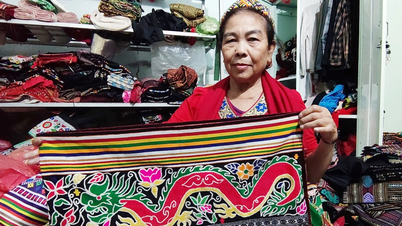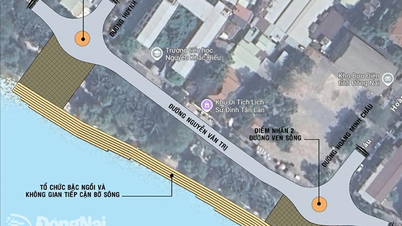Updated date: 10/08/2024 04:52:04

DTO - Safe motherhood is one of the important contents of maternal and child health care, aiming to improve the quality of health care for mothers and newborns, reduce the rate of obstetric complications, reduce maternal and newborn deaths. Healtheducation contents on Safe Motherhood have been of interest to the World Health Organization and many countries, becoming an important content of the Global Maternal and Child Health Care Strategy. In particular, regular prenatal check-ups and giving birth at medical facilities are extremely important factors to help pregnant mothers have a safe and healthy pregnancy for their children.

Healthy women will give birth to healthy children, get a health check and advice before pregnancy
To ensure adequate nutrition for women before pregnancy, it is necessary to have a reasonable, varied diet with enough 4 food groups (protein, fat, sugar, vitamins and minerals) to achieve a normal body mass index (BMI) of 18.5 - 24 or to weigh at least 40kg. Take iron and folic acid supplements to prevent anemia due to iron deficiency and micronutrient deficiency, use iodized salt daily, deworm regularly; vaccinate against tetanus for women aged 15 - 35. Women should be vaccinated against influenza and rubella at least 3 months before pregnancy; work and rest properly, avoid exposure to toxic substances; have a general health check-up and gynecological examination every 6 months; treat appropriately internal and surgical diseases, gynecological diseases, reproductive tract infections and sexually transmitted diseases (if any).
Pregnancy Care
Regular prenatal check-ups help detect risks and diagnose diseases early for both mother and child. To reduce the risk of maternal and child mortality, pregnant women need to have prenatal check-ups at a medical facility at least 4 times during the 3 stages of pregnancy and give birth at a medical facility. During the first 3 months, have at least 1 prenatal check-up; during the second 3 months, have at least 1 prenatal check-up during the 4th to 6th month of pregnancy; during the last 3 months of pregnancy, have at least 2 prenatal check-ups (from the 7th to the 8th month and in the 9th month).
In addition to the above regular prenatal check-ups, mothers can have additional check-ups as instructed by medical staff (depending on the health status of the mother and fetus).
Pregnant mothers should get all the tetanus vaccinations to prevent both mother and baby. Tetanus vaccine is not harmful to mother or fetus. Husband and family should remind and help pregnant mothers to get all the tetanus vaccinations.
Eat and rest properly to increase resistance and ensure fetal development. Eat a full and balanced diet of food groups: starch (rice, potatoes, corn...); protein (meat, fish, eggs...); fat (oil, grease, oilseeds...); vitamins and minerals (vegetables, tubers...).
Eat more meals, each meal is larger, especially in the last 3 months of pregnancy to ensure the mother's health, the development needs of the fetus and reserve energy to produce milk for the baby after birth. Drink enough water (milk, fruit juice, boiled water left to cool) every day from 1.5 - 2 liters; do not use alcohol, beer, strong tea, coffee, tobacco...; supplement micronutrients (take iron and folic acid tablets or multivitamin tablets daily from pregnancy to 1 month after birth, use iodized salt daily to prepare food); implement food hygiene and safety measures: eat cooked food, drink boiled water left to cool, do not eat spoiled food; do light work, do not come into contact with toxic chemicals; maintain physical activity, improve health; have a reasonable lifestyle, rest, work, sleep enough or at least 8 hours a day...

Care for mothers in labor
All pregnant mothers need to give birth at a medical facility to ensure the safety of both mother and child. The family needs to prepare the means, money, and necessary items for the birth; take the mother to a medical facility immediately when there are signs of labor (increasing abdominal pain, pink or watery vaginal discharge); should not give birth at home because it does not ensure sterile work and does not have adequate equipment to handle emergencies when complications occur; if you cannot get to a medical facility in time when giving birth, you need to immediately notify medical staff and midwives to come and support the mother to give birth at home and use a clean delivery package. The husband and family need to recognize the mother's danger signs during labor, encourage her mentally to help her overcome the labor with peace of mind.
To reduce the risk of maternal and child mortality:
Pregnant mothers need to have regular check-ups at least 4 times during the 3 stages of pregnancy.
Mothers should go to a medical facility immediately if they have abnormal signs during pregnancy such as: bleeding from the vagina or abdominal pain; swelling of the face, legs, and arms; blurred vision or severe headache; high fever above 38.5 degrees Celsius; feeling pale, tired, having palpitations, difficulty breathing; passing amniotic fluid without labor pain; fainting or convulsions...
Prepare for childbirth: choose a safe place to give birth (give birth at a medical facility suitable for the mother's health and pregnancy; can consult with medical staff); prepare documents, pregnancy examination papers, personal papers as well as expenses for giving birth; prepare means of transport to be able to take the mother immediately to the chosen medical facility when there are signs of labor; phone number of the commune and district midwife, obstetric emergency and available means of transport in the locality to seek help when needed; near the date of birth, if the house is far from the medical facility and the road is not convenient, the family should take the pregnant mother to a temporary place of residence near the chosen medical facility or contact and ask to wait to give birth at the medical facility.

Postpartum care
Immediately after birth: place the baby skin-to-skin with the mother and breastfeed within the first hour after birth; the mother receives care at a medical facility for at least 24 hours; rest and get enough sleep; monitor lochia to detect postpartum bleeding early. If bright red blood or blood clots are seen, notify medical staff immediately or take the mother to a medical facility.
During the first 6 weeks after giving birth (first 42 days): eat more, with adequate nutrition, drink enough water (2 liters/day); take iron and folic acid tablets as instructed by medical staff; do not do heavy work, only do appropriate physical exercise; sleep at least 8 hours/day; share your thoughts and feelings with family members, do not hesitate when you need help.
Dr. Nguyen Thi Xuan Quyen - Dong Thap Province Center for Disease Control
Source: https://baodongthap.vn/suc-khoe/-kham-thai-sinh-de-tai-co-so-y-te-de-an-toan-cho-me-manh-khoe-cho-con--126122.aspx




































































































Comment (0)